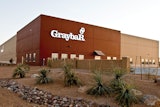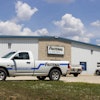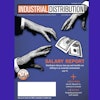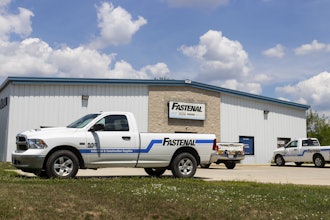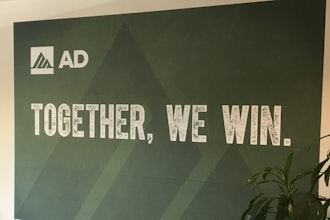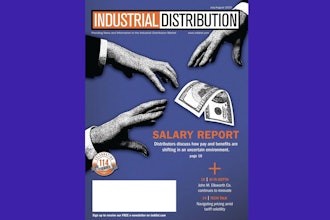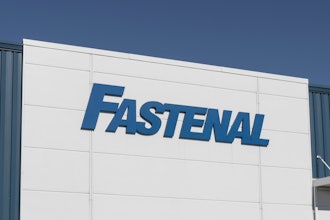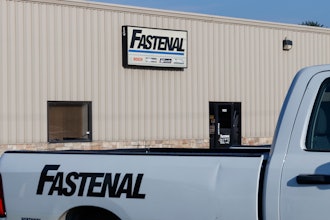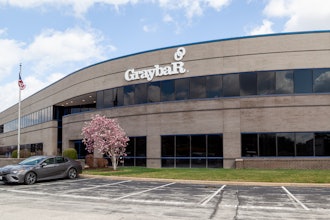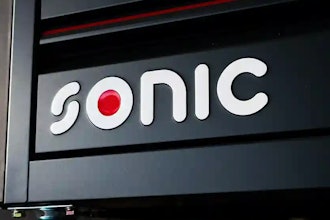
Justin Roff-Marsh refers to himself as a “sales contrarian,” and if you paged through his book you’d understand why. The founder of a sales management and 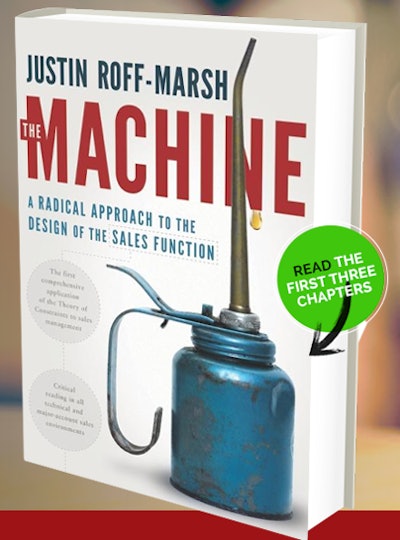
ID: The foundation of your thesis is based on “sales process engineering.” Can you define the concept for us?
JR: Sales process engineering is a generic term that we've adopted and it refers to the application of formal engineering principles, particularly borrowed from production and project management to the sales function. Really at the essence of that is thinking of sales as a science rather than as an art.
 Roff-Marsh
Roff-Marsh
ID: When you look at the business environment as it relates to industrial distribution, there's a lot of factors that are changing the role of the salesperson...
JR: And the traditional salesforce is aging out. The problem is these companies feel compelled to maintain the basic sales structure the way that it is to placate their late 50- early 60-something salespeople. People who are planning their retirement. As a consequence, [sales organizations] end up with an environment that's wholly inhospitable to newcomers. Today nobody with any reasonable education would want to go down that path. There are too many other jobs to choose from.
ID: So how do you think distributors can do better recruiting when it comes to the sales side of their organization?
JR: It's not a recruiting problem. It's a design of the organization problem. If you offer a good proposition to people, they will take it. To the extent that distributors are blaming recruiting — they're blaming the symptom rather than the cause. The cause is, you have to have a more compelling proposition to offer to candidates. And our approach to having a more compelling proposition is to completely restructure the sales environment, and turn sales into more of a professional role. Get rid of all of the superfluous activities that salespeople don't need to do and aren't particularly good at — what they call prospecting, customer service, solution design and so on. And look for people who are comfortable to do the one critical task that we genuinely need salespeople to perform. And that's talking to folks on the phone and selling them things.
ID: Are distributors generally hesitant to upend their entire existing structure? Is this a hard sell?
JR: Of course they are. But if they are not prepared to do it to themselves, Jeff Bezos will do it for them. It's partly tongue in cheek, but there are two threats. One is e-commerce, but let's call e-commerce ‘Jeffrey’ or ‘Amazon,’ because it's more visceral if we put a name to it. To call it e-commerce makes it sound less threatening than it really is.
We have an organization that we work with that is growing at a massive pace. They're a distributor of HVAC and componentry; basically an e-commerce business with an inside sales team. And the sole function of the inside sales team is to basically migrate prospective customers from their existing relationships with traditional distributors to an e-commerce site. So it's kind of like Amazon with a Salesforce bolted on the front. So that's one enormous danger. And the other enormous danger is, as it's becoming less and less necessary to visit with customers face to face, manufacturers are realizing that they can build and manage their own sales force very efficiently.
Distributors have to change their model and there's two parts to it. Redesigning sales so sales becomes more efficient is long overdue, but there's also a requirement for them to figure out what their value-add is. If their value-add is providing field depots and inventory storage locations and basically they're in the logistics business, then the danger with that is they're going to be put out of business by one or two large players like Grainger and Fastenal.
If they decide that's not their value add, then what the hell is their value add? I think that some distributors are going to have to realize that they need to wrap services around the products that they supply in order to stay relevant.
For more information on The Machine, visit www.ballistix.com.
